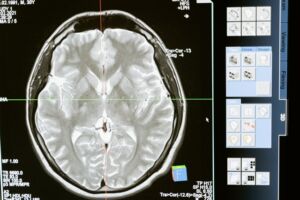
Chronic pain affects millions of Americans. It can be frustrating and debilitating, especially when it seems like treatments have failed. There are many conditions and diseases that cause chronic pain, and not all of them are preventable. The good news is that chronic pain that occurs after an injury or surgery may be preventable. Research has found that lifestyle and environmental factors increase chronic pain risk. The choices a patient and their provider make immediately following an injury can also make a difference.
Here are four things you can do to prevent chronic pain.
1. Understand Why Pain Happens
The signals and processes that cause pain are complex and involve more than one body system, but you don’t have to attend medical school to understand the basics. Research has found that patients with more knowledge about the physiological underpinnings of their pain are less likely to experience chronic pain.
While nerves throughout the body are involved in pain signaling, pain is really made in the brain. Your brain can control what you feel and how intensely you feel it. Tissue damage doesn’t always equal pain, and pain doesn’t always indicate damage. Your brain is like a triage manager, prioritizing signals to aid your survival. A person who’s injured during a life-threatening (or extremely frightening) situation won’t experience intense pain until the situation has passed. The brain knows you might have to run on that sprained ankle to escape danger and will hold off on pain signals until you are safe.
Many people with considerable injuries don’t experience pain for reasons that aren’t well understood. 90% of people in a study of seniors with no low back pain had degenerated or bulging discs. The same study found that 36% of participants had a herniated disc, and 21% had spinal stenosis. So why didn’t they feel any pain?
That question is not easily answered, but the bottom line is that your mental and emotional state, overall health, and environment are better indicators of your risk for chronic pain than actual tissue damage. None of this means that pain is “all in your head.” The pain signals and sensations are very real, even when tissue damage isn’t present.
It’s important to note that chronic pain can be caused by low-level inflammation and physiological factors other than tissue damage. This is often the case when pain persists after an acute injury. Treatments that encourage the body to finish healing and calm nerves can prevent long-term pain.
2. Take Care of Your Mental Health
As we stated above, pain is not “all in your head,” but your pain can be affected by your mental and emotional state. Pain is often associated with feelings of fear, anxiety, and depression. Research indicates that these feelings can make people more prone to chronic pain. There are several reasons for this. Chronic anxiety can cause muscle tension, increase inflammation throughout the body and cause nerves to be hyper-stimulated. Anxiety often leads to hypervigilance, which causes the brain to prioritize pain signals, meaning you’ll feel things your brain would normally have ignored.
The changes in brain chemistry and structure that lead to depression may also cause oversensitivity to pain. Body aches are a common symptom of depression that often resolve with depression treatment.
If you are going through a stressful time, dealing with an acute injury, or struggling with anxiety or depression, there are things you can do to prevent chronic pain. Relaxation exercises, therapy, mental health medications, and healthy habits like socializing and exercising can calm your nervous system and keep pain signals in check. Try taking up a hobby or interest that can distract you from how bad you feel. Over-focusing on negative emotions or physical sensations will only make them worse.
3. Stay Active
It’s important to follow your provider’s instructions while you heal an acute injury so you don’t re-injure it. But staying active in safe ways may help you heal faster and reduce your chances of chronic pain.
Physical activity reduces stress and anxiety, boosts mood, and causes your brain to produce pain-fighting endorphins. It also improves circulation, which is crucial for the healing process. Your injury needs plenty of blood flow to bring healing cells to the area. Without this, the healing process is more likely to stall and cause lingering low-level inflammation and pain.
Talk to your provider about ways to stay active while dealing with an acute injury. You may be able to do an activity that works a different part of your body (for instance, jogging if you’ve hurt your shoulder.) Low-impact activities like swimming may also be appropriate and could help you heal better and regain strength and flexibility.
4. Seek Holistic Treatment
Since so many different things cause pain, it’s important to see a provider that provides a range of treatment options. Your injury may need some extra help to heal completely. Treatments like PRP injections that bring healing cells to the injured area can prevent chronic pain by encouraging the healing process to complete.
Chiropractic adjustment and massage therapy can lower stress levels and improve neurological function.
Patients with difficult-to-diagnose conditions affecting the spine often find relief through spinal decompression therapy. This non-invasive treatment relieves pressure on nerves, increases circulation, rehydrates discs, and reduces inflammation. Physiotherapy and rehab help to keep you active safely and reduce the risk of further injury by building strength and flexibility. Physiotherapy also helps the injury heal without excess scar tissue, a common cause of chronic pain.
Eating a healthy diet and practicing good stress management techniques while you heal may also decrease healing time and reduce your chances of chronic pain.
Chronic Pain Prevention in Houston
At Vanguard Spine and Sport, we help injured patients heal so they don’t experience prolonged pain. Without prompt, appropriate treatment, back and joint injuries often cause chronic pain. By providing several treatments under one roof, we give our patients their best chance at making a full recovery. Schedule a consultation today to find out how we can help you heal.





